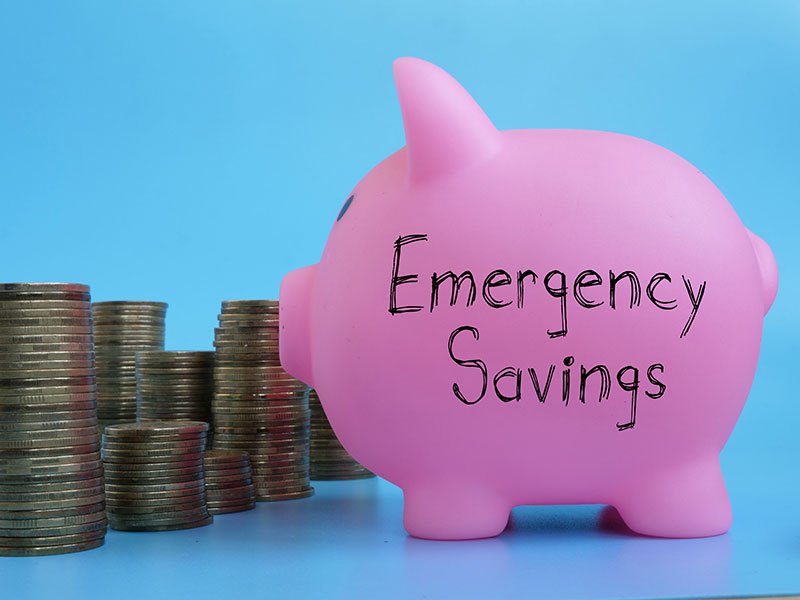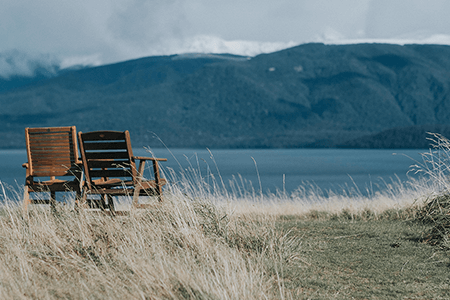So you want to... financially prepare for the unexpected?
By MAS Team
By MAS Team
Thinking about what would happen to your financial situation if you fall ill or have a serious accident isn't much fun, but you'll never regret being prepared for the unexpected. This is especially true if you have people relying on you like a partner, kids, or fur babies.
There are some simple steps you can take to make sure things are taken care of if the unexpected happens and to make sure you can still pay your bills and keep up with your lifestyle if you could no longer work. Find out more about how insurance can help you prepare for the worst-case scenario.

Your ability to earn an income is one of your most valuable assets. But if you become sick or got into an accident and were unable to work for a while, how would you pay your living expenses?
Whether you need to take a few months off work while you recover or considerably longer, affecting your ability to work in the long term, income security insurance could help provide you with a percentage of your previous weekly income so you could maintain your lifestyle if you weren't able to keep working. If you're self-employed, a contractor, or a freelancer, it's especially important that you have a plan in place for what would happen if you couldn't work anymore.
Life insurance can seem daunting, but anyone with dependents or debts should look into it. If you have a mortgage, it's especially important to consider having life insurance to make sure repayments could still be made if you died.
A life insurance solution can be created to meet your specific circumstances. Find out more about MAS Life insurance or have a chat to your MAS Adviser if you're thinking about getting life insurance cover or making a change to an existing policy.
A just-in-case fund is something we should all have – the amount in it will depend on your circumstances and financial obligations. Experts generally recommend you should have savings equivalent to three months’ expenses (rent, bills, food, transport, debt repayments) that you don’t dip into. Whatever the amount is, make sure you’re actively building a savings account you could access if something unexpected happened.

It’s a great idea to sit down with your partner or loved ones and talk about those awkward "worst case scenario" situations. While it's tough to imagine what would happen if you were to fall seriously ill, be involved in an accident, or even die, these are the kinds of events when insurance can make a huge difference, so it's worth having these conversations. Having the right insurance cover in place will give you peace of mind and make sure you're looked after if the worst were to happen.
You should think about things like:
As your life changes, your insurance needs will change too. Whether it's updating your contents insurance policy to include your swish new mountain bike, or making sure your income security insurance covers that payrise you finally got, make sure your insurance is keeping up with the changes.
You should review your situation every year and see if you need to add, increase or even decrease your insurance cover. If you're feeling unsure, a chat with a MAS Adviser could help clarify how insurance can help you prepare for the unexpected.
If you have possessions that are worth something or assets like savings or investments, then it’s time to have a will. Writing a will can seem morbid and unnecessary for a 20 or 30-something, but it's important to outline who gets what if something were to happen to you. Be sure to work with a professional to create your will, as it could be one of the most important documents you ever have to prepare.
Another thing to consider, however much you might not want to think about it, is preparing an enduring power of attorney (EPA). This is a legal document that nominates who can take care of your personal or financial matters if you couldn't. EPA is mostly talked about in relation to elderly people, but it's sensible for people of all ages to have them, in case they were involved in an accident or become ill.
Talk to a MAS Adviser today to find out how to future-proof your insurance.
This article provides general information only, and is not intended to constitute financial advice. Before taking out any insurance product, you should carefully consider the terms and specific policy wording. Underwriting criteria will apply.

Here are some important things you should know about getting rid of that lurking student loan debt – fast.

Budgeting is a financial tool that helps individuals and households effectively manage their money. Let's explore our top tips for budget planning.

Retirement might seem far away when you’re in your 20s or 30s, but the financial choices we make when we're young can have a big impact on our future.